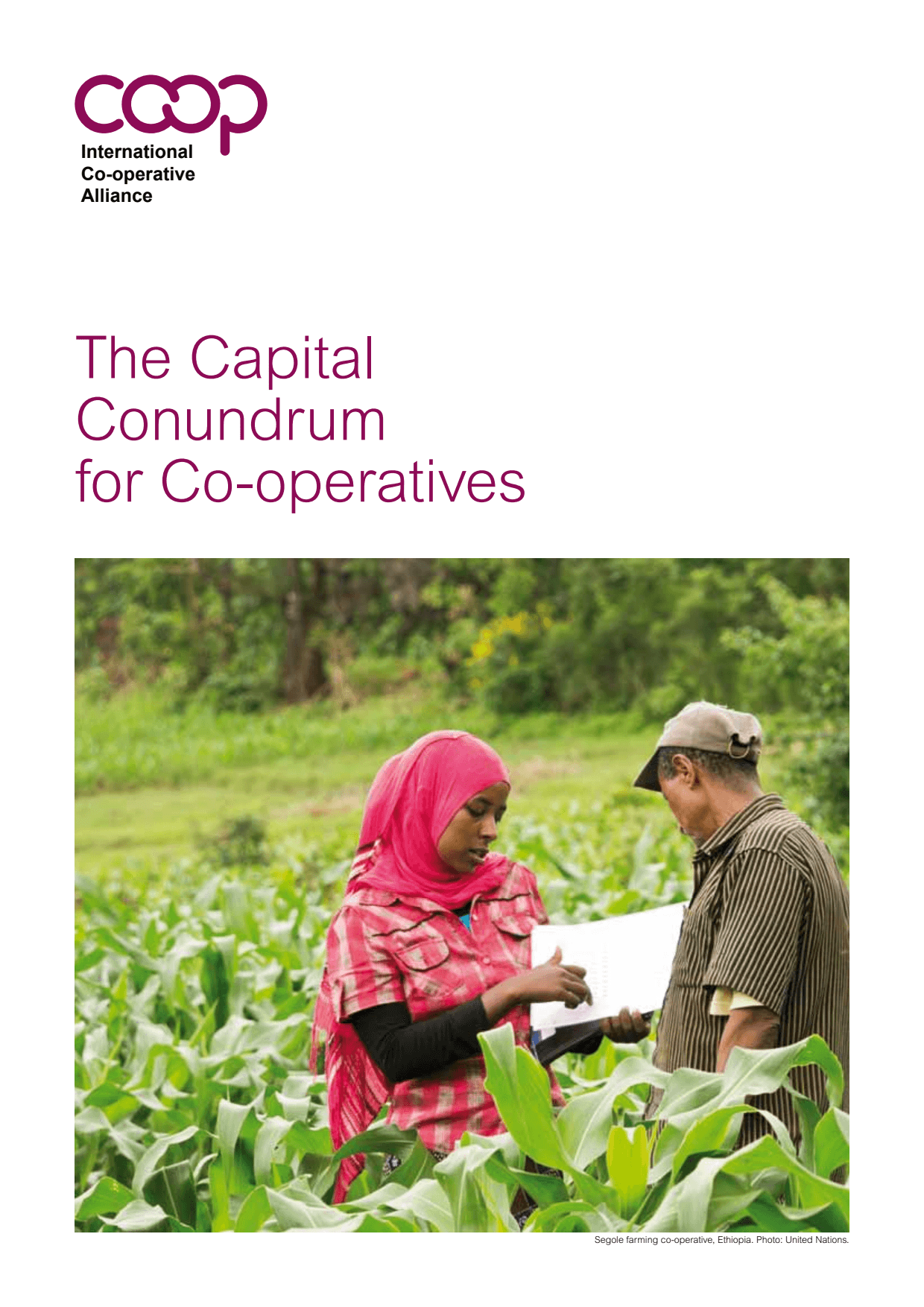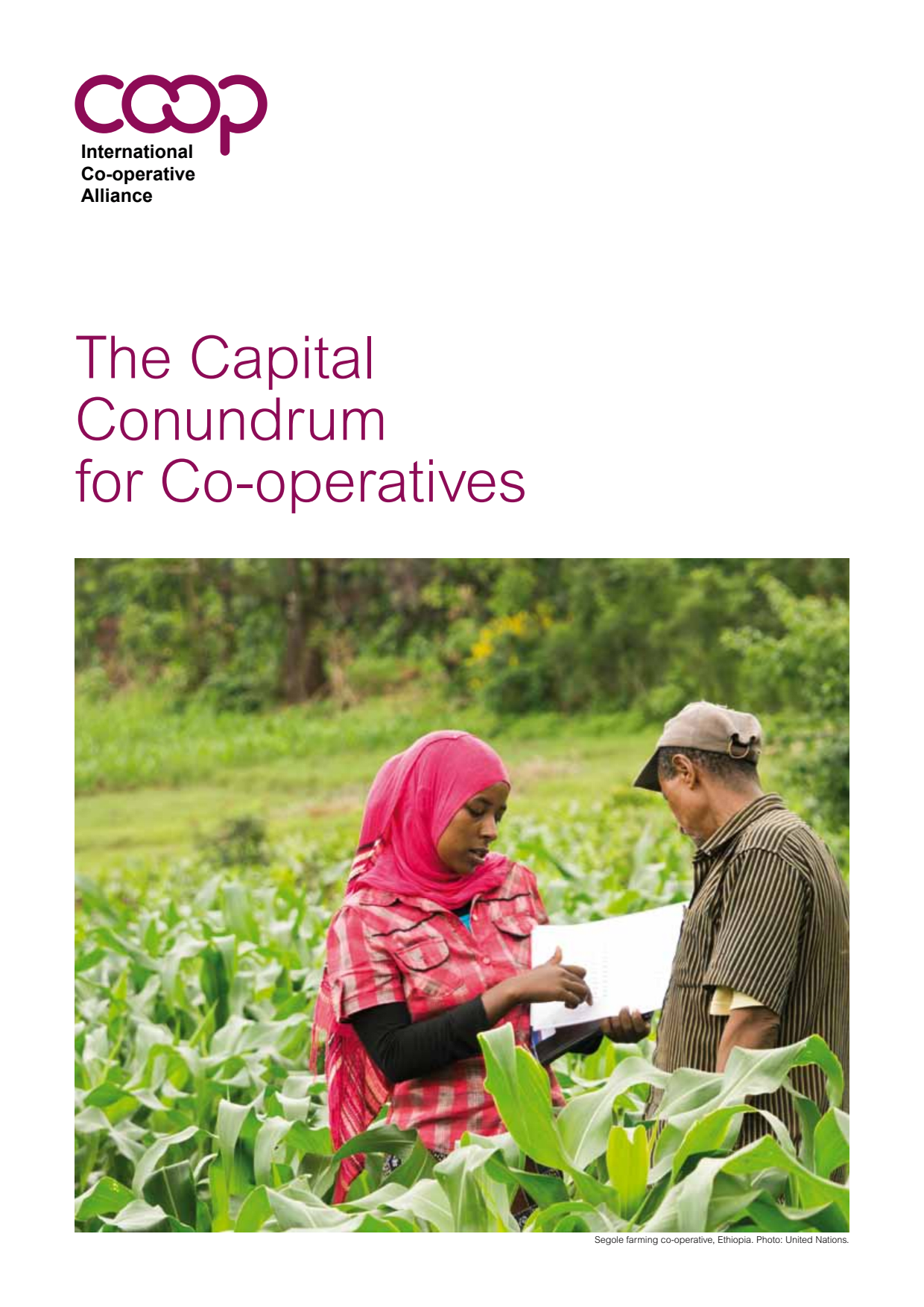AI-Generated Summary
Context and Publisher
"The Capital Conundrum for Co-operatives" is a comprehensive report published by the International Co-operative Alliance (ICA), an organization dedicated to promoting and supporting cooperative enterprises worldwide. The report is the result of extensive research conducted by the Alliance's Blue Ribbon Commission, which focused on the challenges that cooperatives face in accessing suitable long-term capital.
Key Findings
The report reveals a complex relationship between cooperative capital and the principles that define cooperatives. It emphasizes the importance of "philosophical capital," which prioritizes member involvement and community benefits over mere financial investment. This perspective is critical for cooperatives, as their identity is intrinsically linked to their cooperative principles.
Approaches to Capital Engagement
Three main approaches to capital engagement are suggested in the report. First, cooperatives can adhere to their principles while seeking capital beyond their membership base. Second, they can adapt to market realities while striving to preserve their foundational principles. Lastly, there is the option to transform both market paradigms and cooperative principles to better align with changing contexts.
Notable Case Studies
The report features several noteworthy case studies that illustrate successful capital engagement strategies. One example is worker cooperatives, which have demonstrated higher survival rates when utilizing indivisible reserves. Another is Rabobank, which has innovatively employed member certificates as hybrid capital instruments. Additionally, Fonterra has created a fund that allows farmers to sell economic rights while retaining control over voting.
Compatibility of External Capital
A crucial finding of the report is that external capital can align with cooperative philosophy if structured correctly. It is vital that external investors do not gain voting power, and their financial rewards should not be strictly tied to maximizing profits. This insight is particularly important for cooperatives looking to raise capital without compromising their core values.
Innovative Financial Instruments
The report underscores that cooperatives can successfully attract capital while maintaining their principles through innovative financial instruments. By carefully structuring investor rights, cooperatives can navigate the challenges of modern capital needs without sacrificing their cooperative identity.
Expertise of the Authors
The report is authored by a team of specialists from various cooperative sectors, which enriches its analysis of capital building across different types of cooperatives—from worker cooperatives to larger financial institutions. Contributors include TAN Suee Chieh and Chuin Ting Weber, who provide the introduction, alongside experts like Bruno Roelants, Frank Lowery, and Jean-Louis Bancel, each examining unique aspects of cooperative capital.
Conclusion
In conclusion, while cooperatives face distinctive challenges in accessing capital, the report outlines viable solutions that allow them to preserve their identity while addressing modern financial demands. The insights provided by the authors can serve as a valuable resource for cooperatives seeking to navigate the complexities of capital engagement.

